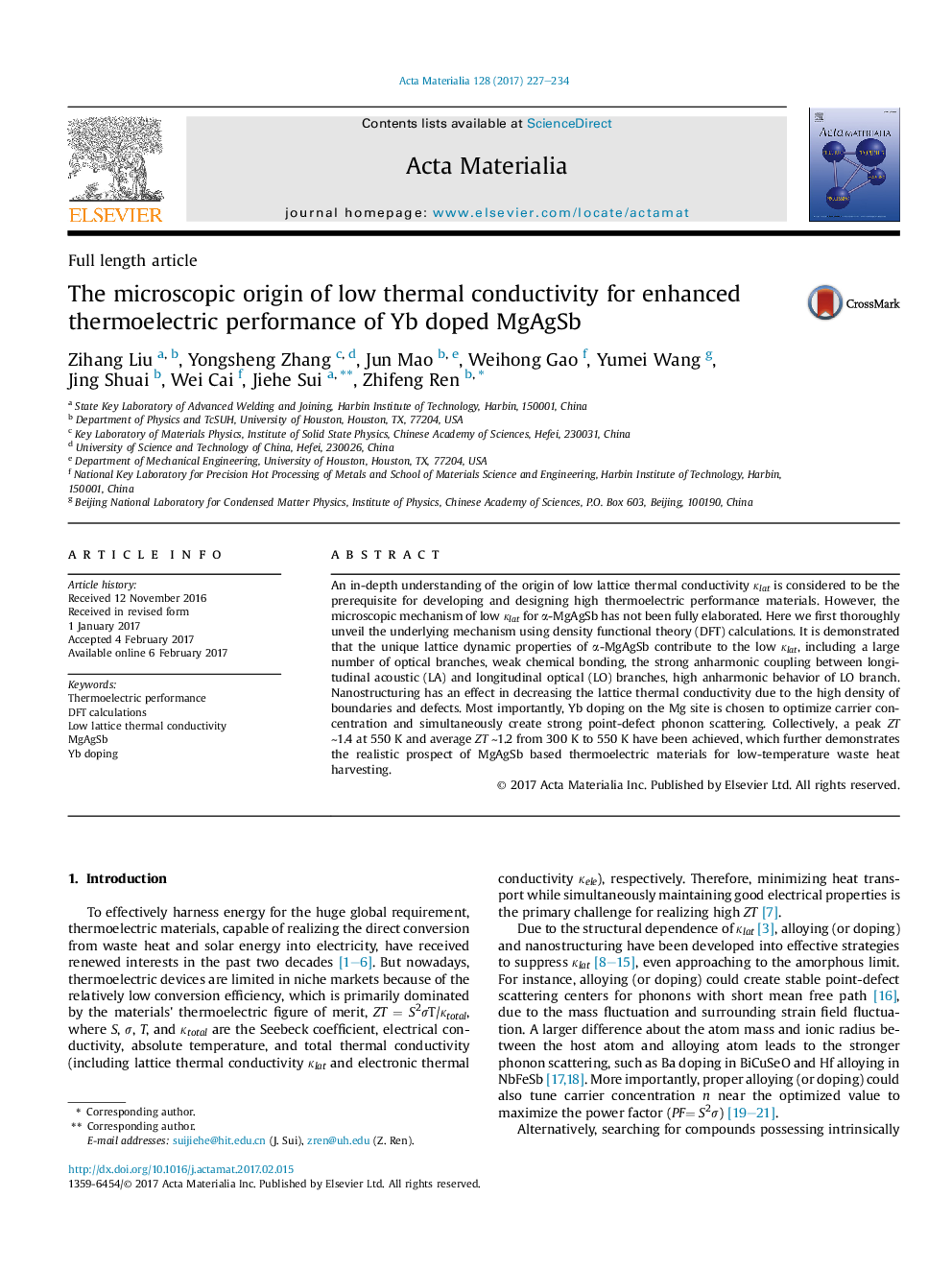| کد مقاله | کد نشریه | سال انتشار | مقاله انگلیسی | نسخه تمام متن |
|---|---|---|---|---|
| 5436276 | 1509548 | 2017 | 8 صفحه PDF | دانلود رایگان |

An in-depth understanding of the origin of low lattice thermal conductivity κlat is considered to be the prerequisite for developing and designing high thermoelectric performance materials. However, the microscopic mechanism of low κlat for α-MgAgSb has not been fully elaborated. Here we first thoroughly unveil the underlying mechanism using density functional theory (DFT) calculations. It is demonstrated that the unique lattice dynamic properties of α-MgAgSb contribute to the low κlat, including a large number of optical branches, weak chemical bonding, the strong anharmonic coupling between longitudinal acoustic (LA) and longitudinal optical (LO) branches, high anharmonic behavior of LO branch. Nanostructuring has an effect in decreasing the lattice thermal conductivity due to the high density of boundaries and defects. Most importantly, Yb doping on the Mg site is chosen to optimize carrier concentration and simultaneously create strong point-defect phonon scattering. Collectively, a peak ZT ∼1.4 at 550 K and average ZT ∼1.2 from 300 K to 550 K have been achieved, which further demonstrates the realistic prospect of MgAgSb based thermoelectric materials for low-temperature waste heat harvesting.
The microscopic origin of intrinsically low κlat of α-MgAgSb in the lattice dynamics was thoroughly revealed using density functional theory (DFT) calculations. More importantly, we achieve a peak ZT ∼1.4 and average ZT ∼1.2 via Yb doping.Figure optionsDownload high-quality image (271 K)Download as PowerPoint slide
Journal: Acta Materialia - Volume 128, 15 April 2017, Pages 227–234